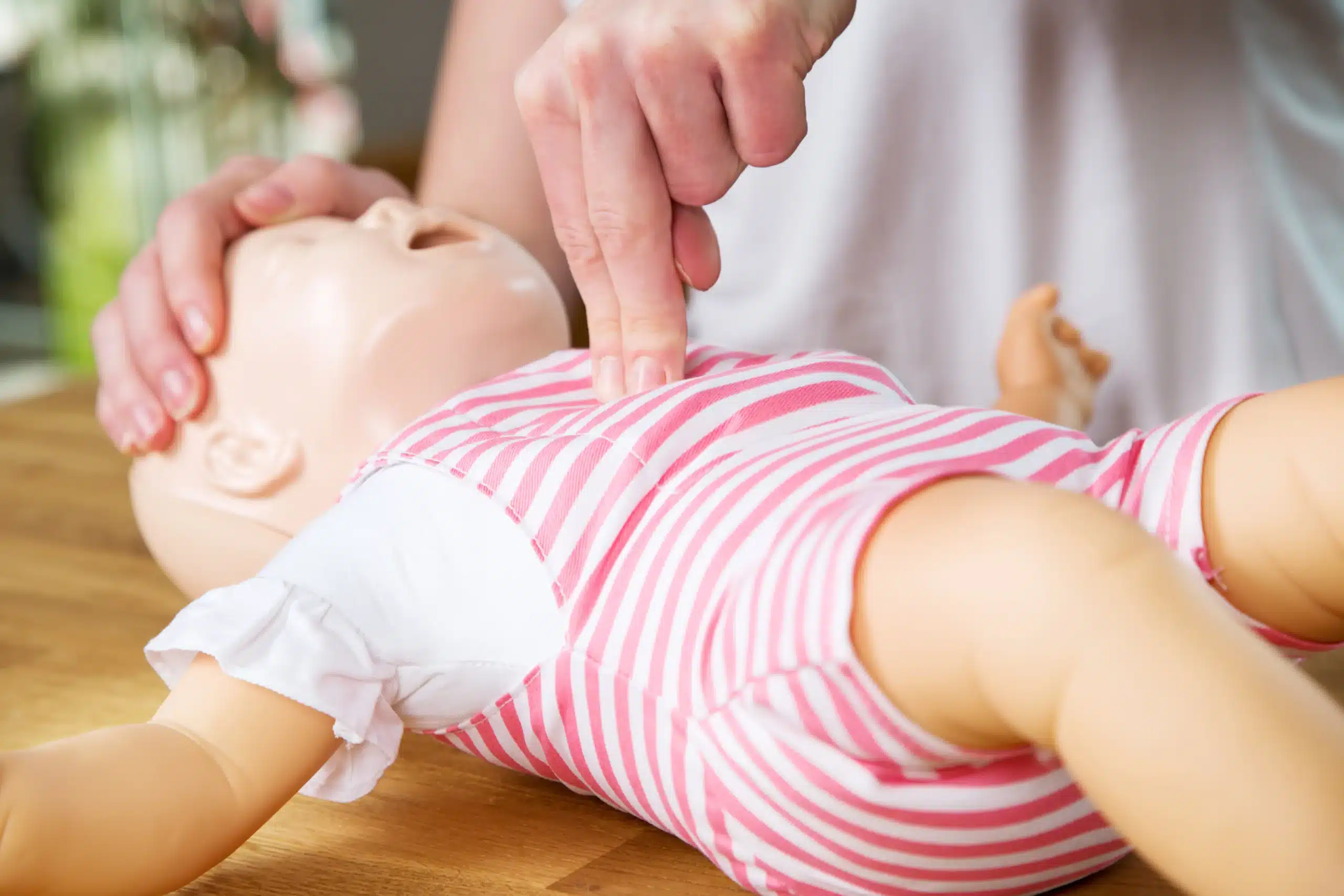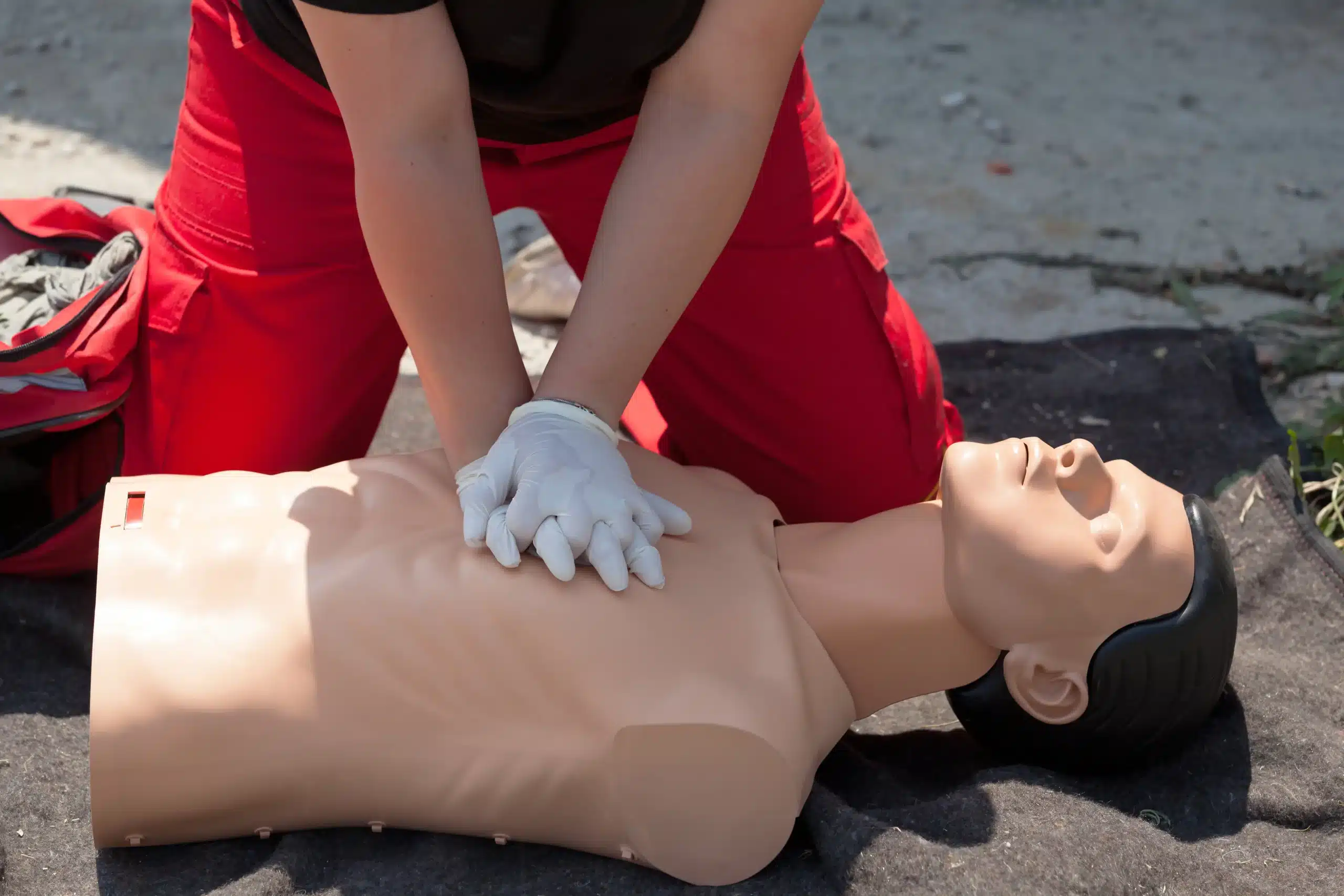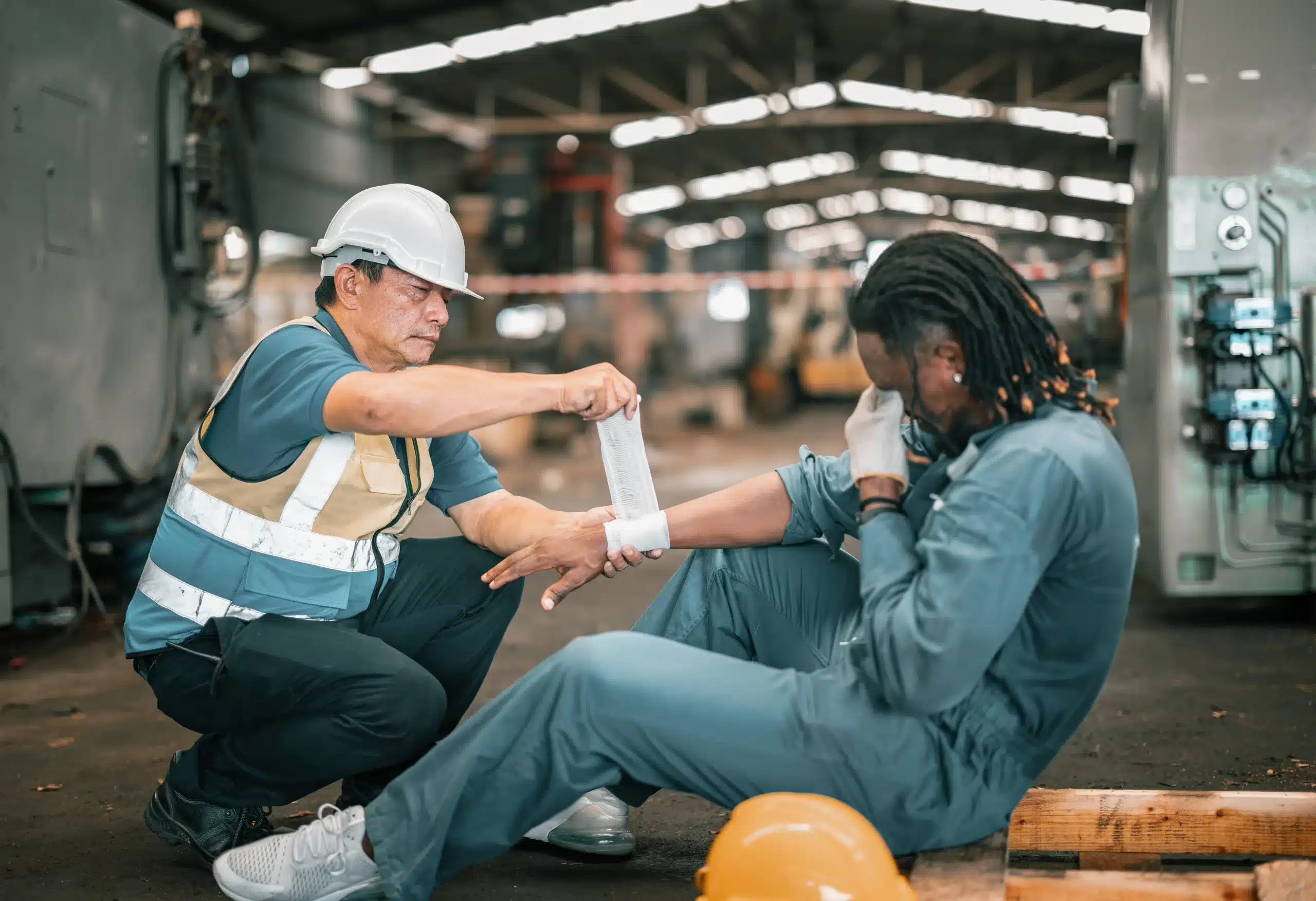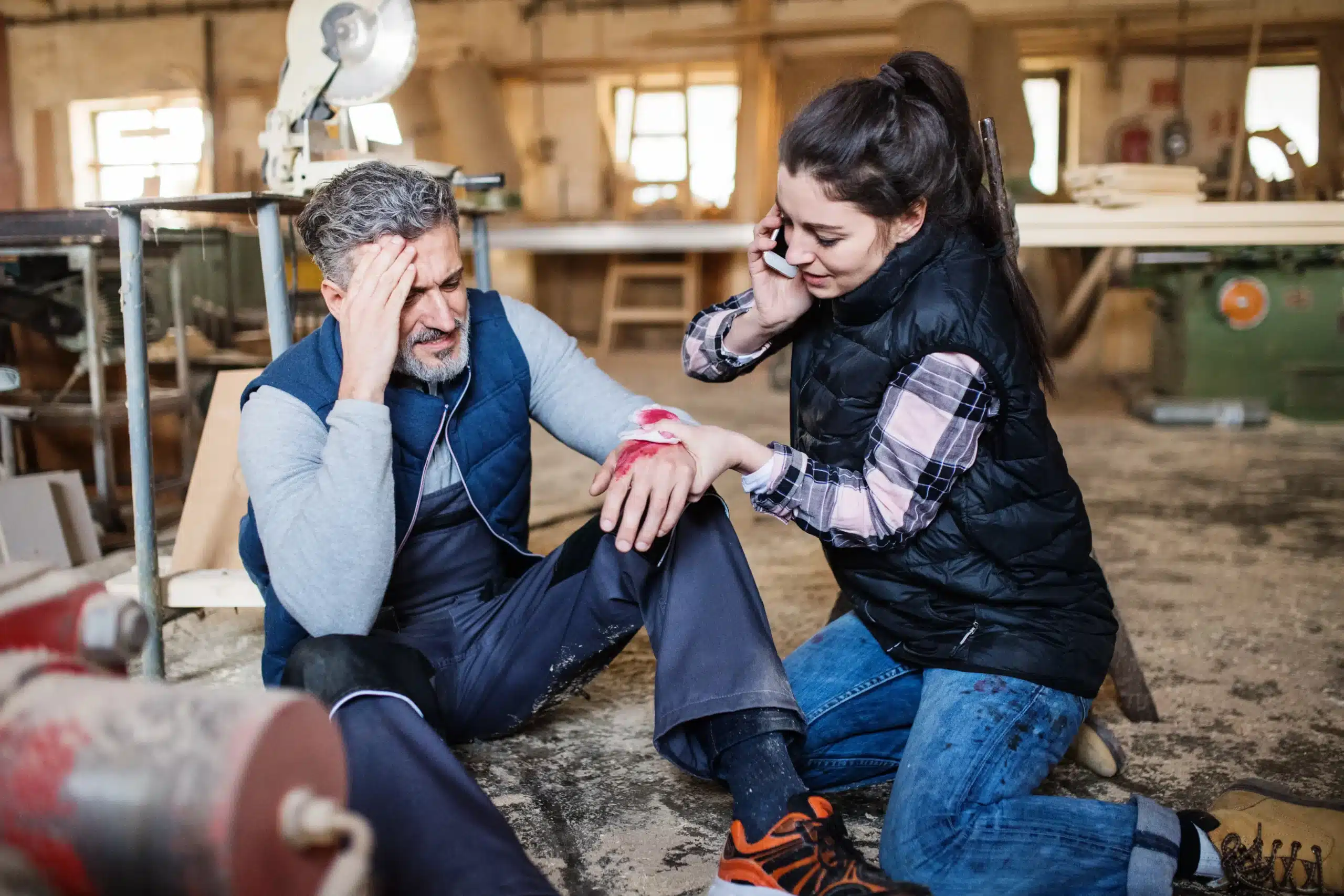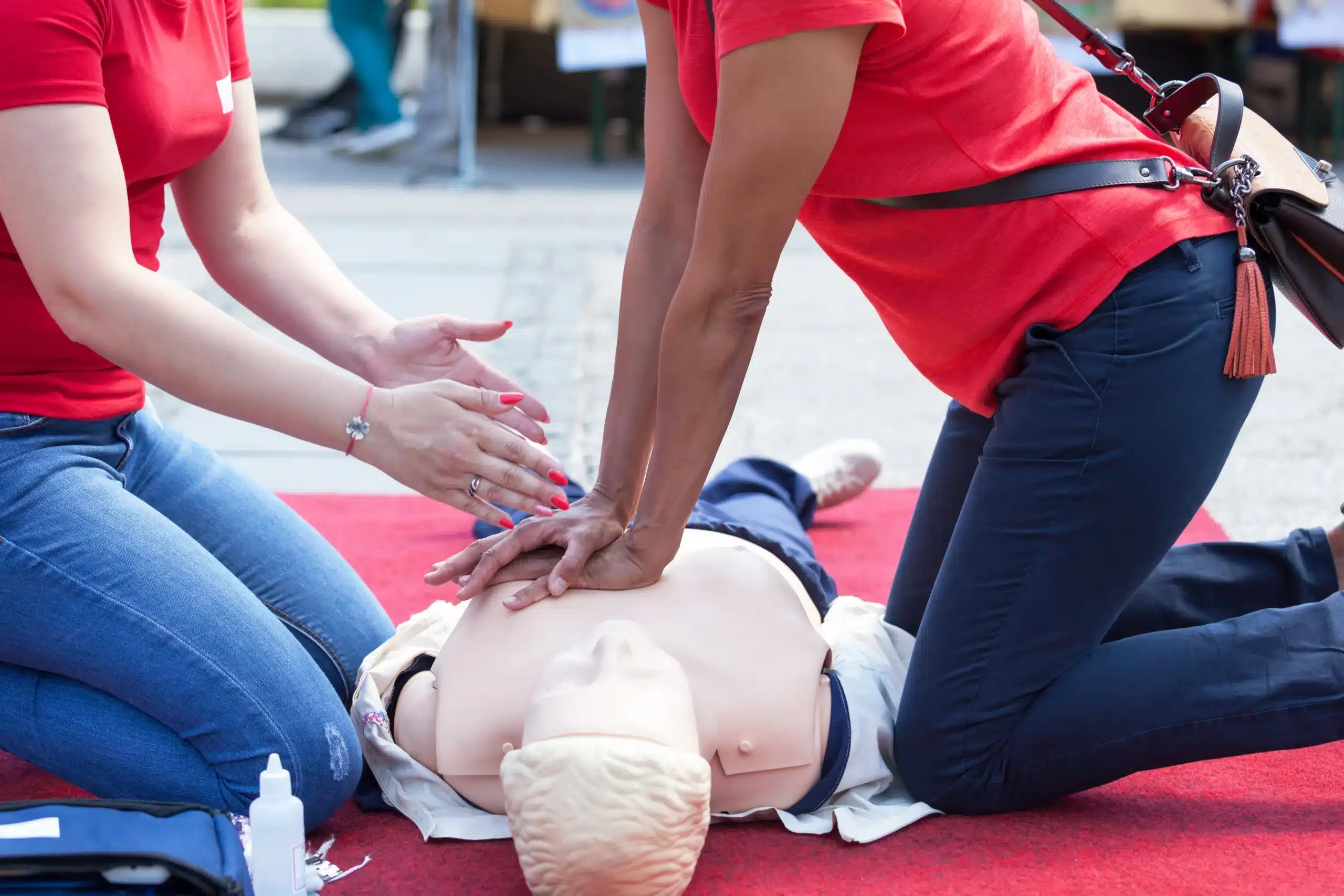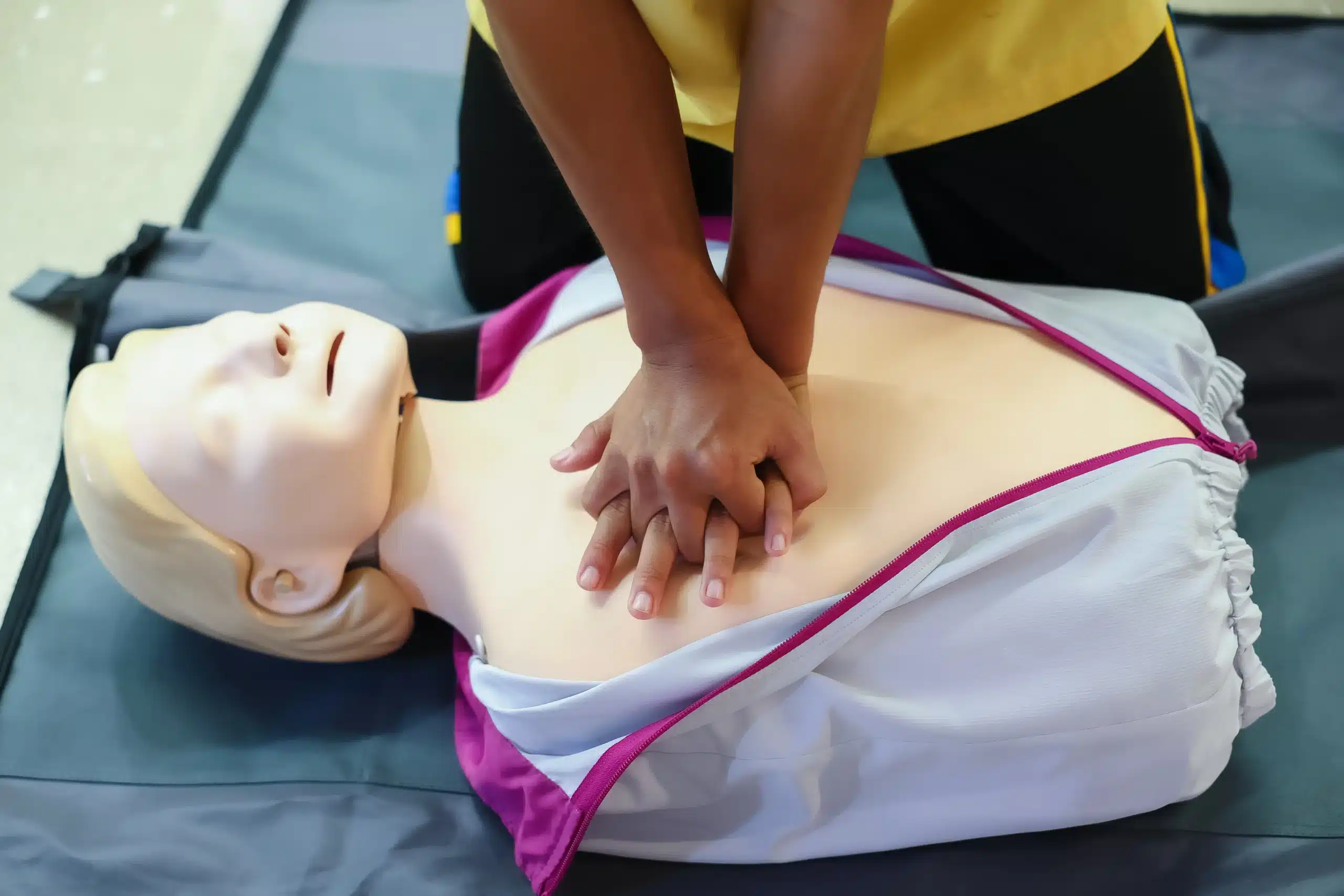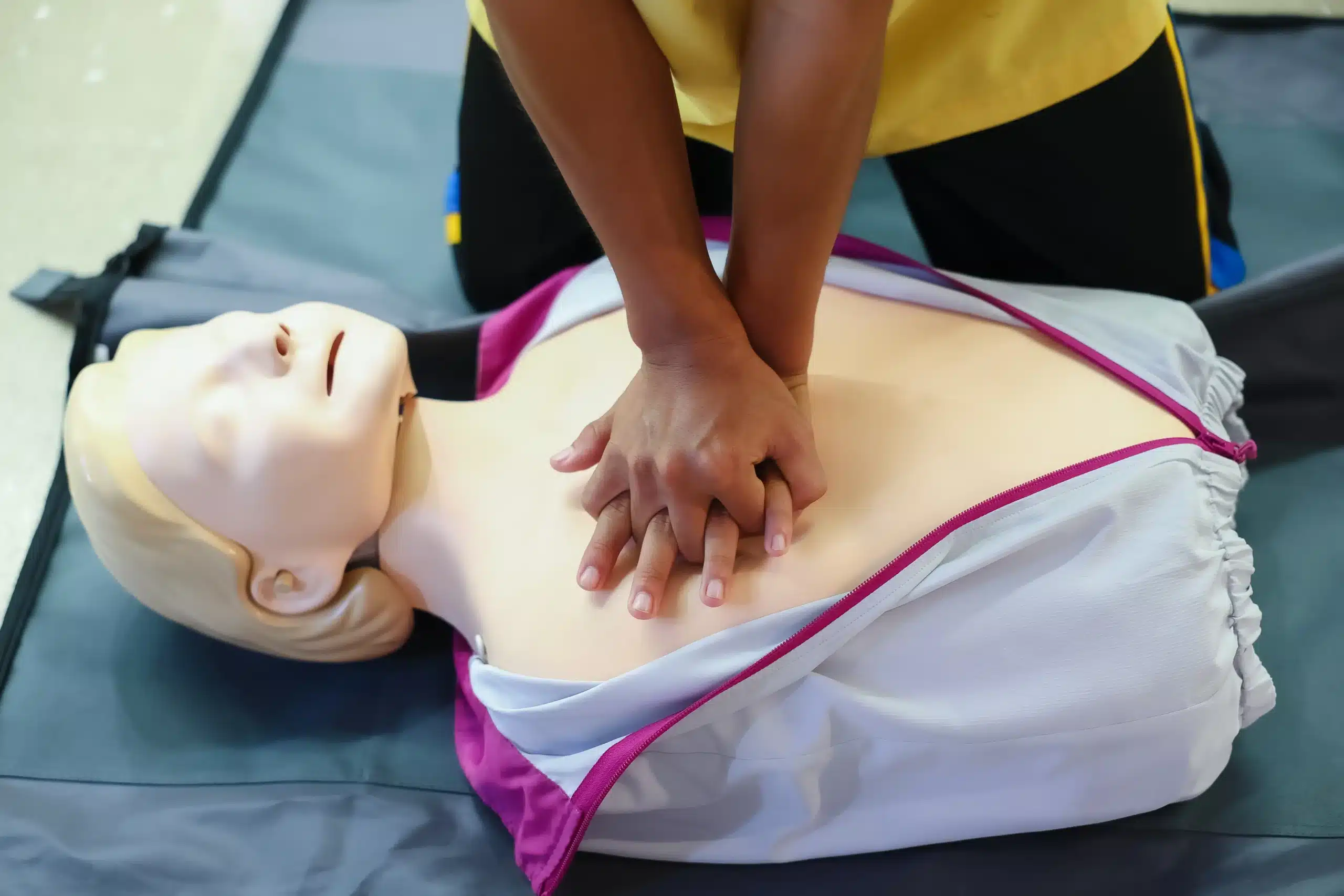In a medical emergency, seconds can matter. BLS training equips you with the skills to respond confidently and potentially save a life. This comprehensive guide covers everything you need to know about BLS, including where to find “BLS training near me” in San Jose and other areas. We’ll explore the core skills taught in BLS courses, the benefits of certification, and how to choose the right training program. Whether you’re a healthcare professional, a concerned parent, or simply someone who wants to be prepared, this guide will help you understand the importance of BLS and find the perfect training opportunity.
Key Takeaways
- BLS training empowers you to act in emergencies: Learning CPR, AED use, and basic airway management gives you the confidence to respond effectively to life-threatening situations. These skills are invaluable for everyone, not just healthcare professionals.
- Choosing the right BLS course is crucial: Consider accreditation, instructor experience, and course format (in-person, online, or hybrid) when selecting a program. Prioritize hands-on practice and a supportive learning environment. Safety Training Seminars in San Jose offers various options.
- Maintain your BLS skills through recertification: Stay up-to-date with the latest guidelines by recertifying every two years. Actively engage in your training and seek continuing education opportunities to keep your skills sharp and your confidence high.
What is BLS Training & Why Do You Need It?
Basic Life Support (BLS) certification is crucial for healthcare professionals and a valuable asset for anyone who wants to be prepared for medical emergencies. It gives you the skills to respond effectively in life-threatening situations, from a heart attack to a choking incident. The training covers essential techniques and knowledge, empowering you to provide immediate care and potentially save a life. Even if you aren’t in the medical field, BLS training can make a real difference in an emergency. For those in the San Jose area, you can find BLS courses in San Jose easily.
Key BLS Skills
BLS training covers essential life-saving skills. You’ll learn how to use an automated external defibrillator (AED), a portable device that can help restore a normal heart rhythm during cardiac arrest. Our BLS certification course covers AED usage in detail. The course also teaches basic airway management techniques, including how to help someone who is choking. You’ll learn rescue breathing techniques and how to recognize and respond to various medical emergencies. Plus, BLS training emphasizes team dynamics, preparing you to work effectively with others in high-pressure situations.
Benefits for Healthcare Professionals & Everyone Else
For healthcare providers, BLS certification is often a job requirement and the foundation for advanced life support training. But the benefits of BLS training extend far beyond the medical field. Anyone can benefit from learning these life-saving skills. Knowing how to perform CPR and use an AED can dramatically increase the chances of survival for someone experiencing cardiac arrest. High-quality BLS is a critical link in the chain of survival, and having trained individuals ready to respond can make all the difference. The American Heart Association provides further information on the importance of BLS. Whether you’re a healthcare professional, a concerned citizen, or simply want to be prepared for anything, BLS training empowers you to act quickly and confidently in emergencies. Consider getting BLS certified—it could save a life.
Find Top BLS Training Near You
Finding the right BLS training program is crucial for both your confidence and your career. Here’s a breakdown of where to look, from national organizations to local providers:
Safety Training Seminars in San Jose
If you’re in the San Jose area, Safety Training Seminars offers various CPR and safety training courses, including BLS certification. They pride themselves on excellent customer service and a low price guarantee, making quality training accessible. Check their website for BLS courses in San Jose and nearby cities like Santa Clara and Sunnyvale. Reading BLS training reviews can give you a sense of what to expect.
American Red Cross
The American Red Cross is a well-known provider of BLS training nationwide. Their courses meet national standards and are designed for healthcare providers and first responders. Check the Red Cross website to find BLS certification courses near you. While their Philadelphia location is mentioned as an example, they offer training across the country.
Local Hospitals & Community Colleges
Local hospitals and community colleges often offer BLS training courses. These institutions can be a great resource, sometimes providing additional training opportunities beyond basic BLS certification. Consider whether the provider offers specialized courses that align with your career goals.
Online Training
Online BLS training has become increasingly popular due to its flexibility. These courses allow you to study at your own pace and on your own schedule. Many online programs are nationally accepted and offer certification upon completion. However, make sure the online course you choose includes a hands-on skills assessment component, which is essential for proper certification. ACLS Medical Training, for example, offers a 100% online BLS certification course. This type of training is convenient but requires self-discipline to complete effectively.
What Happens in a BLS Training Course?
Curious about what to expect in a BLS training course? Here’s a quick overview to help you prepare.
Course Length & Content
BLS courses are designed to accommodate both new and seasoned learners, including those needing recertification. These courses typically run between 2.5 and 4.5 hours, depending on the provider and format. You’ll cover essential life-saving techniques like CPR for adults, children, and infants, along with how to use an AED. The curriculum also includes important topics such as recognizing and responding to life-threatening emergencies, relieving choking, and basic first aid. Find BLS courses in San Jose at Safety Training Seminars.
Certification & Validity
Upon successful completion of a BLS course, you’ll receive a certification card valid for two years. This certification demonstrates your proficiency in BLS skills and knowledge. It’s essential to keep track of your certification’s expiration date. Renewal courses are typically available for those within 30 days of their expiration date, ensuring you maintain your life-saving skills. Check out our BLS certification courses for more information.
Hands-On Practice & Assessment
BLS courses emphasize hands-on learning to build confidence and competence. You’ll participate in practical skill sessions, practicing techniques on mannequins and working with other students to simulate real-life scenarios. This interactive approach allows you to apply what you’ve learned in a safe and supportive environment. Assessment typically involves demonstrating your proficiency in the learned skills, ensuring you’re prepared to respond effectively in an emergency.
Renewing Your Certification
Staying up-to-date with your BLS skills is crucial. As your certification nears its expiration date, look for recertification courses offered by certified training centers like Safety Training Seminars. These renewal courses are designed to refresh your knowledge and skills, ensuring you remain prepared to provide high-quality BLS care. Remember, renewing within 30 days of expiration is often recommended. Learn more about our courses.
Choose the Right BLS Training
Finding the right BLS training is a bit like choosing the right gym—you want the best fit for your needs and learning style. Here’s a breakdown of what to consider:
Accreditation & Reputation
First, check if the training provider is accredited by a recognized organization like the American Heart Association. This ensures the course meets established standards. Safety Training Seminars, for example, is an AHA Training Center offering the American Heart Association BLS course and other certifications. Also, look into the provider’s reputation. Online reviews and word-of-mouth can offer valuable insights.
In-Person, Online, or Hybrid?
BLS courses come in different formats. In-person classes provide hands-on practice and direct interaction with instructors. Online BLS courses offer flexibility and convenience, often using interactive simulations. Hybrid courses combine online learning with in-person skills sessions. Consider which format best suits your schedule and learning preferences. For a traditional classroom setting, check out our BLS courses in San Jose.
Cost & Value
While cost is a factor, focus on the value you receive. A slightly higher price might mean smaller class sizes, more personalized attention, or access to better equipment. The skills you gain are an investment in your future. Check out our low price guarantee.
Instructor Qualifications
Experienced, certified instructors make all the difference. Look for instructors who are not only knowledgeable but also passionate about teaching and create a supportive learning environment. A good instructor can simplify complex concepts.
Scheduling Options
Consider the course schedule and location. Choose a provider with options that fit your availability. Whether you need a weekend course, evening classes, or a specific location, a convenient schedule is key to completing your training.
Get Ready for BLS Training
So, you’re ready to sign up for BLS training. Awesome! Here’s what you need to know before your first class:
Prerequisites & Study Materials
Great news: there aren’t any prerequisites for BLS training. You don’t need prior medical knowledge to take the course. Some providers offer study materials to help you prepare, but they’re usually optional. When choosing a BLS certification provider, consider their reputation, the curriculum, instructor experience, hands-on practice opportunities, certification validity, and cost. A good training center will tick all the boxes, offering a comprehensive learning experience at a fair price.
What to Bring
For in-person training, comfortable clothing is a must since you’ll be practicing skills like CPR and using an AED. Bring a notebook and pen to jot down notes, though most courses provide materials. Your provider will give you a list of required items, but it’s always a good idea to double-check. Before committing to a class, reading BLS training reviews can give you insights into the experiences of past participants.
BLS Training Myths
Let’s bust some common myths about BLS training. First, it’s not just for doctors and nurses. Anyone can benefit from learning these lifesaving skills, from teachers and coaches to stay-at-home parents and office workers. Second, BLS certification doesn’t have to break the bank. Many affordable options exist, including our low price guarantee here at Safety Training Seminars. Finally, BLS certification isn’t a one-time thing. You’ll need to recertify every two years to stay current with the latest guidelines. Remember, BLS training covers essential skills like using an AED, basic airway management, and helping someone who is choking—skills valuable for anyone, as explained in this helpful article on BLS misconceptions.
Tips for BLS Training Success
The key to BLS training success? Engage actively in the course. Ask questions, participate in discussions, and take advantage of the hands-on practice sessions. Don’t be afraid to make mistakes—that’s how you learn! Reviewing BLS training reviews can also help you prepare and choose the right class for your learning style.
Continue Learning
BLS isn’t a “one and done” deal. Medical guidelines and best practices change, so staying up-to-date is crucial. Look for continuing education opportunities, refresher courses, and online resources to keep your skills sharp. This is especially important for healthcare providers, as highlighted in this article on BLS for healthcare professionals. Staying current ensures you’re always ready to respond effectively in a crisis.
Related Articles
- BLS Training in San Jose: Your Ultimate Guide – San Jose CPR Classes
- BLS Classes in San Jose: The Complete Guide – San Jose CPR Classes
- BLS Certification in Santa Clara: A Guide for Healthcare Providers – San Jose CPR Classes
- BLS Certification in San Jose: Your 2023 Guide – San Jose CPR Classes
Frequently Asked Questions
Is BLS certification required for everyone?
While BLS certification isn’t mandatory for everyone, it’s highly recommended for healthcare professionals and anyone who wants to be prepared for a medical emergency. Even outside a healthcare setting, knowing BLS can empower you to help family, friends, or even strangers in a crisis.
What’s the difference between BLS and CPR?
CPR (Cardiopulmonary Resuscitation) is a specific technique within BLS (Basic Life Support). BLS encompasses a broader range of skills, including CPR, AED usage, and basic airway management. Think of CPR as one tool in the BLS toolkit.
How long does BLS certification last, and how can I renew it?
BLS certification is typically valid for two years. Renewal courses are readily available, often offered by the same training centers that provide initial certification. It’s a good idea to start looking for a renewal course about a month before your current certification expires.
What if I’m nervous about the hands-on skills practice?
It’s perfectly normal to feel a little apprehensive about the hands-on portion of BLS training. The instructors create a supportive and encouraging environment where you can practice without pressure. The goal is to build your confidence and competence, so don’t hesitate to ask questions and take advantage of the practice time.
Are online BLS courses as effective as in-person classes?
Online BLS courses offer flexibility, but it’s crucial to choose a program that includes a hands-on skills assessment component. This in-person evaluation ensures you can perform the techniques correctly. While online learning is convenient, the combination of online study and in-person practice often provides the most well-rounded learning experience.


